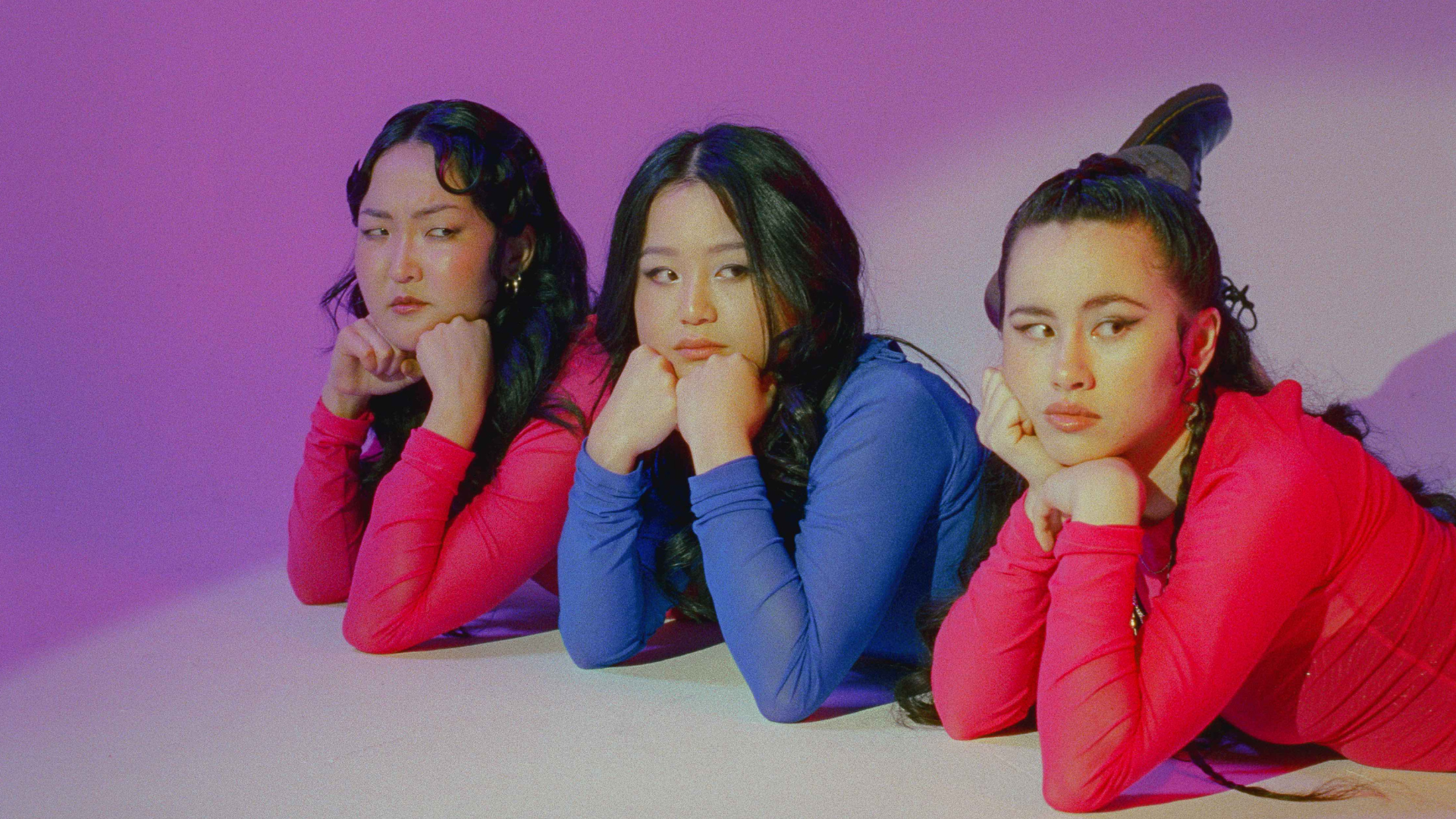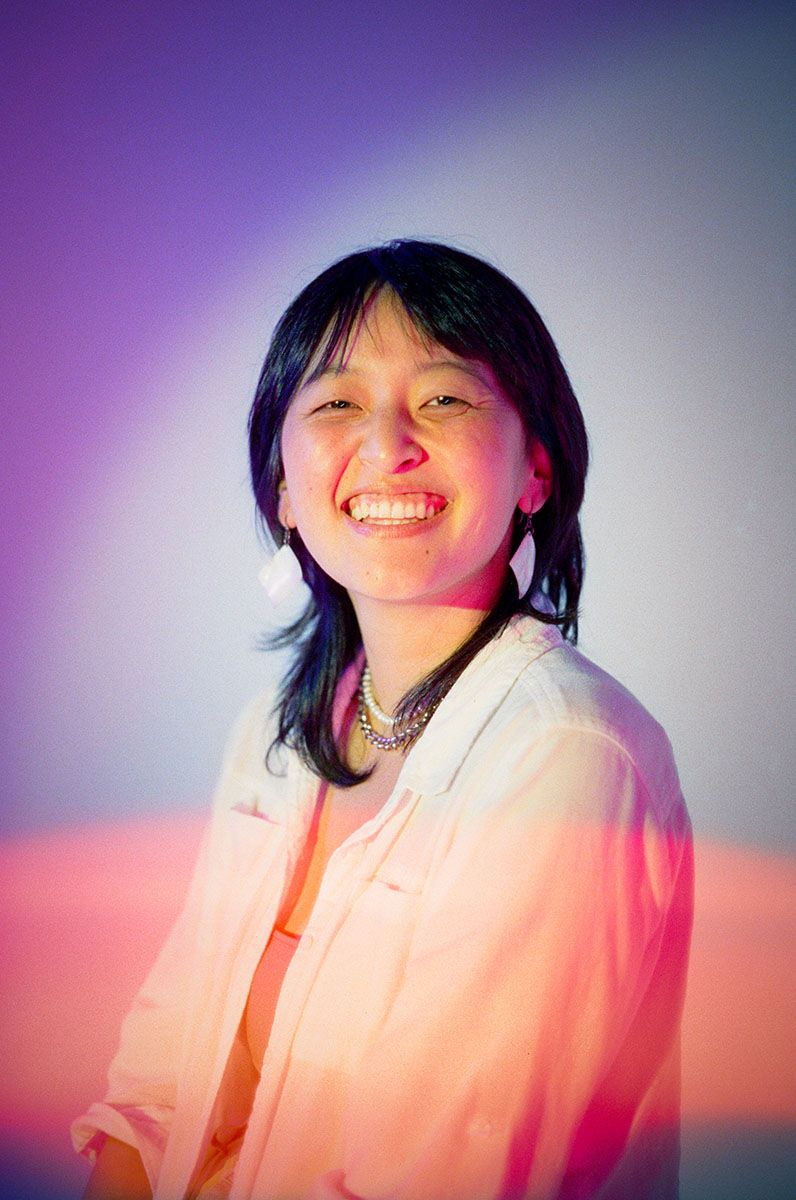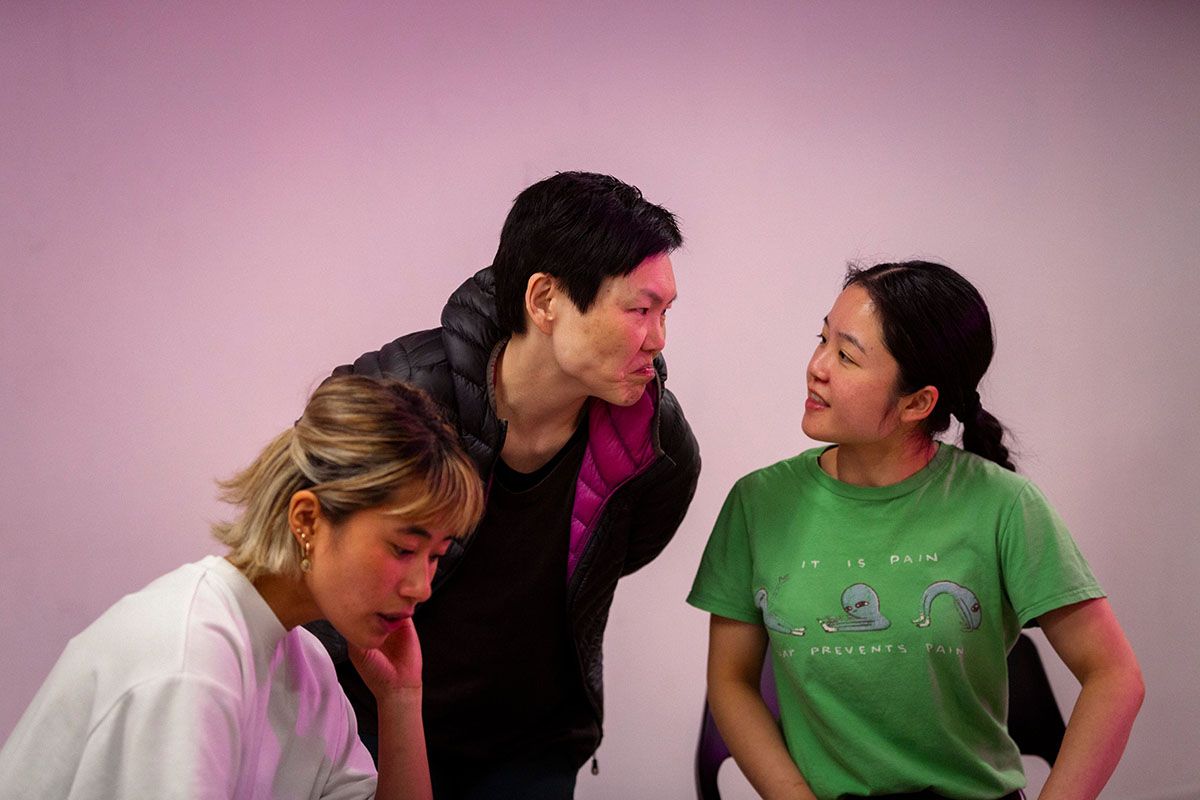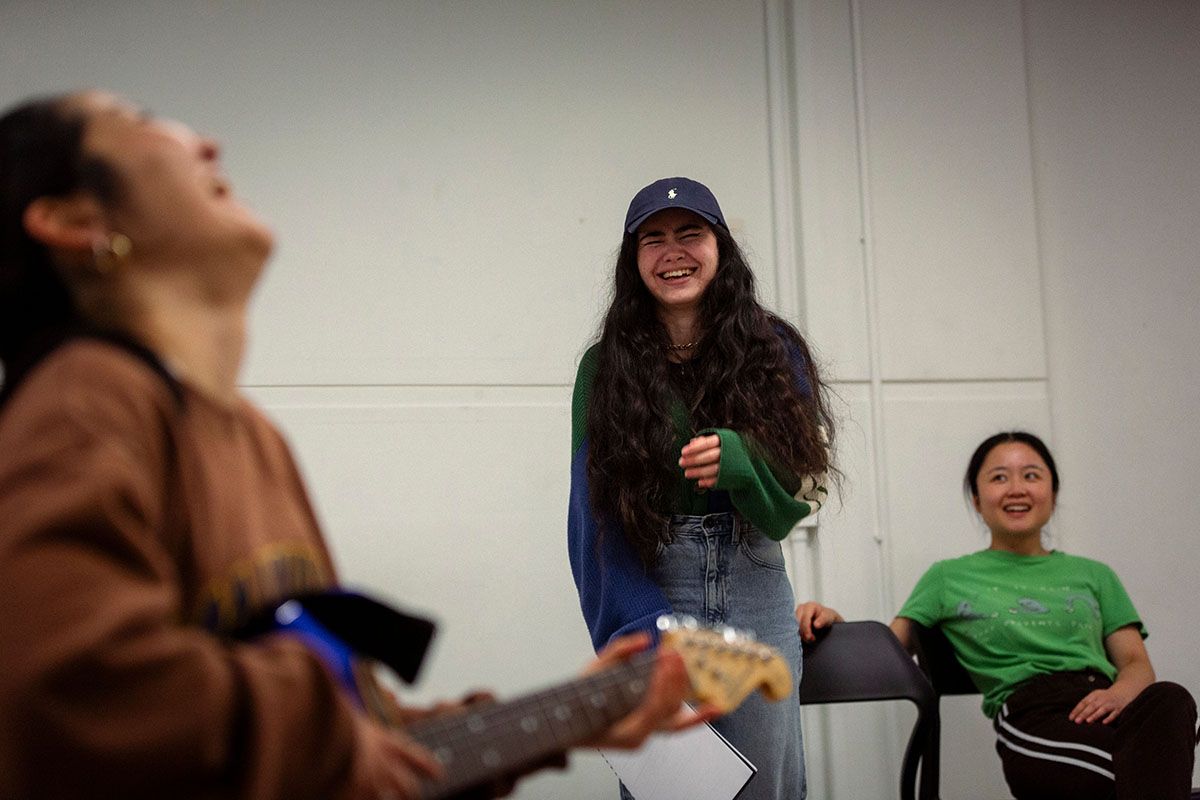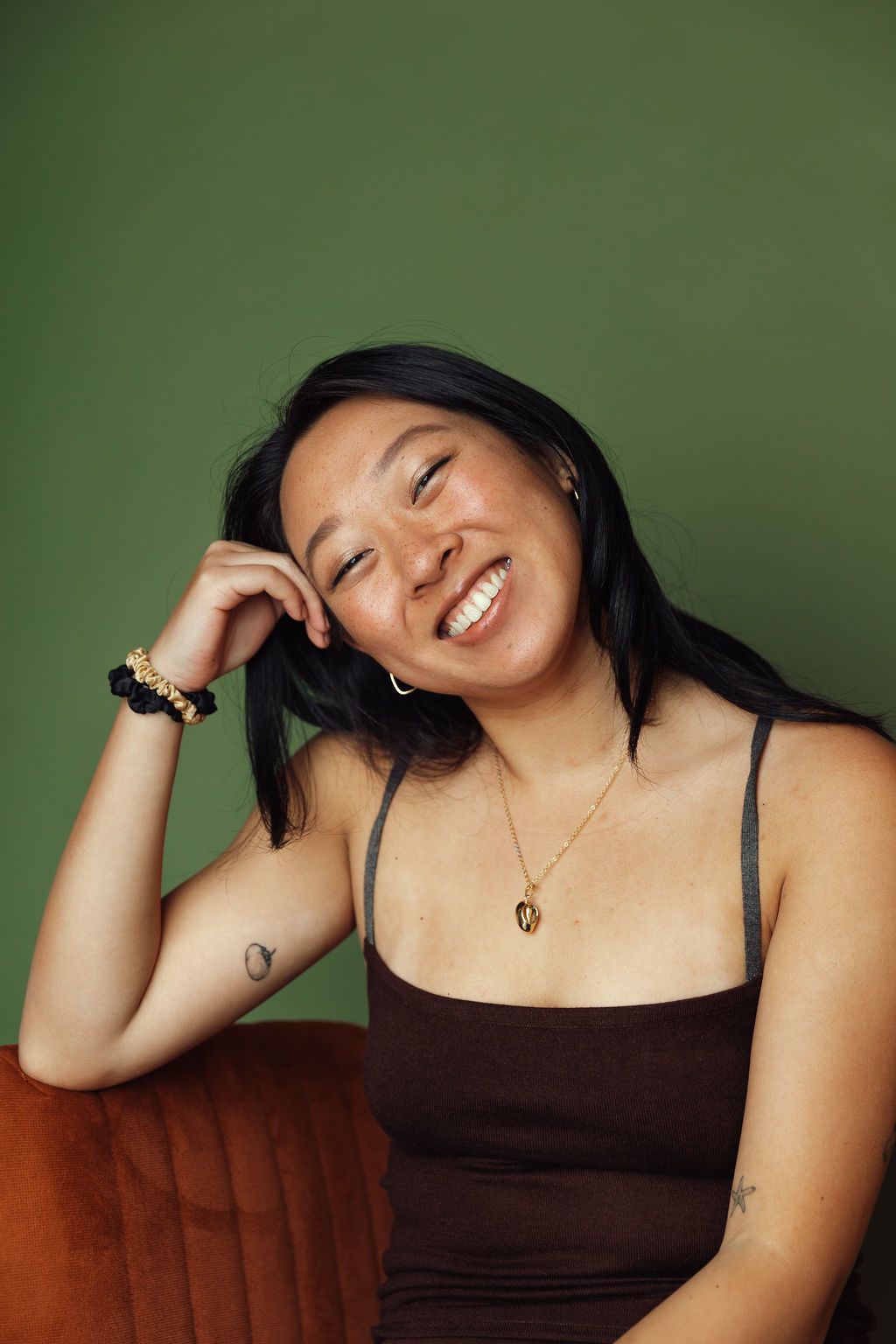Chick Habit!
As if forming a punk band and getting your songs stolen wasn't enough, try being haunted by the ghost of your dead mother. Playwright Nuanzhi Zheng shares the story behind her newest play developed as part of Proudly Asian Theatre.
An offbeat, quarter-life-crisis-angst-filled dramedy, Chick Habit is for those 20-something women who just aren’t ready to grow up.
A new play by Nuanzhi Zheng (co-writer of Yang/Young/杨), directed by Nahyeon Lee, and developed as part of Proudly Asian Theatre’s Fresh Off the Page initiative. Opening on Tuesday 24th of October at Basement Theatre in Tāmaku Makaurau, get tickets here.
I’m meeting Nuanzhi Zheng where we usually meet to pretend to write and talk shit — upstairs at Ipress in Mount Eden, where we’ve often stayed from opening hours to closing, nursing one pot of peppermint tea next to the wall plug.
This time, it’s a little different. The sun is shining, so the dark cloud of seasonal affective depression feels waning. I arrive wearing my lil reporter hat, there’s always a performance when it comes to interviewing your friends. Still, I’m a serious journalist — so I do my research and come prepared with my spiral notebook, ballpoint pen and questions to learn all about Chick Habit, Nuanzhi Zheng’s new play opening at the Basement Theatre.
Playwright of Chick Habit, Nuanzhi Zheng. (Photography: Flora Xie)
The play you wrote, Chick Habit, started off as a comic. When did the ideas for this start percolating?
It was in my third year of uni, in 2018. I was involved in the zine subculture and was seeing what was possible in that art form — so I wanted to make a comic about these three girls who used to be in a punk band, and the jealousy and fighting that breaks them apart!
I remember seeing that comic hanging above your desk at Elam. What was it about these characters, why a punk band, why zines?
I wanted to have this all-Chinese girl punk band because that’s so fucking cool! I knew a lot of cool Asian people… obviously you and me.
As for zines, it became a natural fit because the Riot Grrl zine movement that happened out of Bikini Kill linked those two art forms together. These have always existed in tandem. So for me, to make a zine about a punk band is continuing the legacy of that movement.
We’re dealing with questions of what it means for pop feminism to have unravelled, to not have “made it”, and to understand feminism through an intersectional lens
How has the development of feminism informed your approach?
I think back to the transformation of feminism from the early internet era — the spread of numerous ideas and the third wave that rapidly took over the zeitgeist around the time I was in high school.
I feel like pop feminism (also known as white feminism/liberal feminism/bourgeois feminism) relied on making radical ideas around the empowerment of women as palatable and digestible as possible. Like how ideas about body autonomy and rape culture, ‘my body, my choice,’ got slapped onto makeup brand slogans, which became a justification for hyper-consumerism.
One of the main objectives of this wave of feminism became pressuring companies to say these big, sweeping gestures about womanhood. But a company’s main objective is to make money and be at the service of capitalism. And that's not consistent with the ideas of feminism… that just doesn't make any fucking sense! Corporate feminism, Girlboss feminism — it’s so unsustainable!
The feminism that exists in Chick Habit jumps between the flashback of when they were younger, where they were likely being influenced by this messaging of “Girls can do anything!” and “Dream Big!” In the present day, we’re dealing with questions of what it means for pop feminism to have unravelled, to not have “made it”, and to understand feminism through an intersectional lens alongside pressing conversations about class and capitalism.
In Chick Habit, Olivia, the main character, is haunted by the ghost of her dead mother. Previously, when you and I co-wrote Yang/Young/杨, we also had lots of chats about mother-daughter relationships. What is it about that dynamic that you find yourself coming back to?
In Yang/Young/杨, I wanted to explore the idea you’ll eventually end up being your mum, or as a teenager, you can feel yourself becoming closer to becoming like her as you develop into an adult.
Whereas in Chick Habit, it’s more about the markers of difference. Olivia is challenged to reconcile the difficulties and perceived failures in the relationship with her mother, Li, while trying to confront the grief of losing her.
Especially in Asian communities, there are often stereotypes about what Asian parents are like and their relationship with their children. Like, ‘every Asian child has a strict parent they don’t get along with,” and “Ooh, she’s a tiger mum.” There’s this heightened generational shift where a child doesn’t really understand their parents, by way of differing love languages, miscommunications or just not even speaking the same language. I like cracking that open and trying to understand this phenomenon. With Chick Habit, it’s explored in the aftermath of Li’s tough love, which has made Olivia reject any semblance of a good relationship between the two of them.
Chick Habit Rehearsal picture (Celine Dam, left. Jo Lo, centre. Louise Jiang, right)
What about class? When we were talking about feminism, you said you found this intersection often lacking?
I think Olivia feels that in comparison to Yolande and Xanthe (her former friends/ex-bandmates) who are from wealthy families, they have access points to the wider world, the ability to travel and could get so much more easily than Olivia ever could.
I think the issue when we talk about class is that there's so much narrative that poor people are fucking lazy. People just need to go off and work. The problem with women these days, is they don't want to work! And that's obviously not true. Because it's not that.
There's no correlation between doing a hard job and getting paid the correct amount. Or like doing like a necessary job and getting paid a fair amount.
I guess, I feel like as a Chinese person who doesn’t have lots of money and has left-wing, pro-union parents, I feel a real disparity between my family and other Chinese families being more right-leaning and voting for policies that harm our own and other migrant communities — all because the immigrant dream worked out for them. And even within that immigrant dream of: ‘your parents work so hard that you can do these like huge things, and their sacrifice was a necessary means to an end’ — capitalism is still harmful, because there are plenty of people who sacrifice and do all these things, and they get nowhere. Nothing is rewarding them.
And the immigrant dream, as newcomers in a place, is often achieved at the expense of -
Absolutely at the expense of Indigenous peoples around the world. As the ‘model minority’, we have to be successful in order for white supremacy to survive, in order to pit various groups against each other.
Actually, I’m not going to talk anymore because people smarter than me have already said it, like Emma Ng’s essay Old Asian, New Asian.
And even within that immigrant dream of: ‘your parents work so hard that you can do these like huge things, and their sacrifice was a necessary means to an end’ — capitalism is still harmful
With your creative practice, how did you find your way to playwriting having gone to art school?
I didn’t know what I wanted to do after High School. I mean who does? One of my teachers said I should go to art school as it can be a very freeing space, where you can fuck around for four years. Which is exactly what I did! He said — hopefully you’ll come out the other end knowing a bit more.
And that’s exactly what happened, I met you, and we wrote a play together.
When I entered in first year, I was so open to all these ideas and concepts, because I didn’t go in with a practice. Sure, I can draw — that’s why I made the comic. But I didn’t go in wanting to be a painter. I found it open… so with my potentially undiagnosed ADHD, it was really good to jump around. Like this week, I’m going to do a 3D scan of my body, and next week I’m going to do fucking nothing, because I don’t want to. Then next week I’m going to write a poem about it.
That was really helpful to see every idea through every possible disciplinary lens I could. This is not an ad for Art school btw, it’s not necessarily for everyone.
Well, on the flip side, as someone who just finished law school, I think it’s to my detriment at times, as I get stuck thinking in a certain framework- tell me more about your creative process?
Scattered! I was also doing a screen production conjoint, but I found that too prescriptive. I was like, oh I’ve got to do all these things to make the movie make sense. But I don’t really care about that. I would rather it just be chaos and trust audience members to figure out where that goes.
Chick Habit Rehearsal (Nomuna Amarbat, left. Shervonne Grierson, centre. Louise Jiang, right).
Oh - then how did you see this in comparison to theatre?
I feel for audiences, like theatre is so much more free and open than film. In film, you just see what you see. And then, everyone is kind of working on a singular cropped thing -I’m doing a little box motion right now! [gestures]
But with theatre, there's so much more perspective and room to lean on the audience to imagine and allow the piece to be as big as you want it to be. You can have a teenager playing a grandma. And people can just like let that happen. I feel like the process of theatre is more trusting of each other, between the actors and audience, actors and crew, and crew and audience.
I love the rehearsal process, every night it's a new performance and your work is allowed to evolve constantly. Something I like with both practices is being able to write the things and hand it off. Allowing the next stage to re-write and shape the work, and allowing the audience to re-write that in their own mind.
How did you write Chick Habit?
Shout out to all the people who emailed me with deadlines. Shout out to Marianne for emailing me constantly. I sent that comic script to be developed to Fresh of the Page with Proudly Asian Theatre. Didn’t touch it for months. There’s a lot of leaving it. I don’t know how interesting this is. Then submitted it for the Asian Ink Award in 2022, got selected for that. Shout out to Playmarket, and shout out to Salesi for being patient with my email replies.
God I need a deadline, and these people are giving me deadlines. And right now, I’m still doing re-writes, the re-writes never stop, it will probably be re-written till the show starts - AH.
I love the rehearsal process, every night it's a new performance and your work is allowed to evolve constantly.
What are you excited by?
I think there’s something really exciting in Tāmaki Makaurau. And with this restlessness, I think there is an opportunity for change and revolution. We can actually rebuild these systems that have never benefitted us in the first place. The ground is very ripe for change. Cuz things haven’t been sustainable this whole time.
I just love a team project. I love having everyone else's experiences, ideas, thoughts and feelings. When I'm thinking by myself… I’m like, that's boring!
And was there a soundtrack you listened to? While writing it? The play is a musical? -
No there’s like two songs in it. It’s a play with musical elements. But yeah, I can send the playlist to you:
Header Photography: Flora Xie
